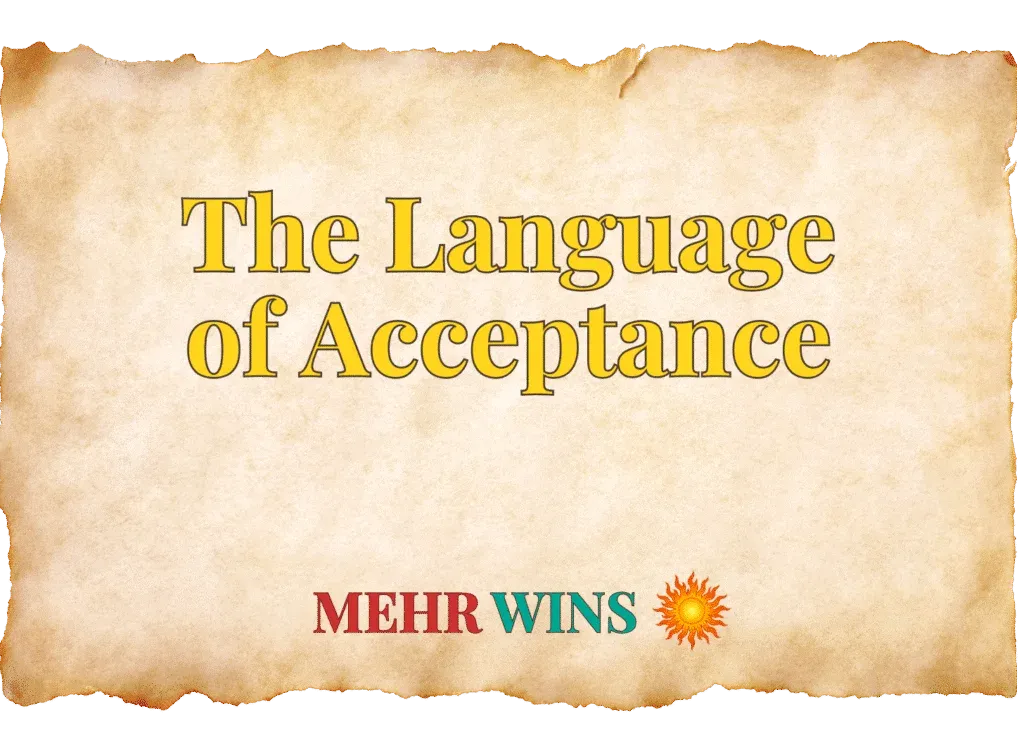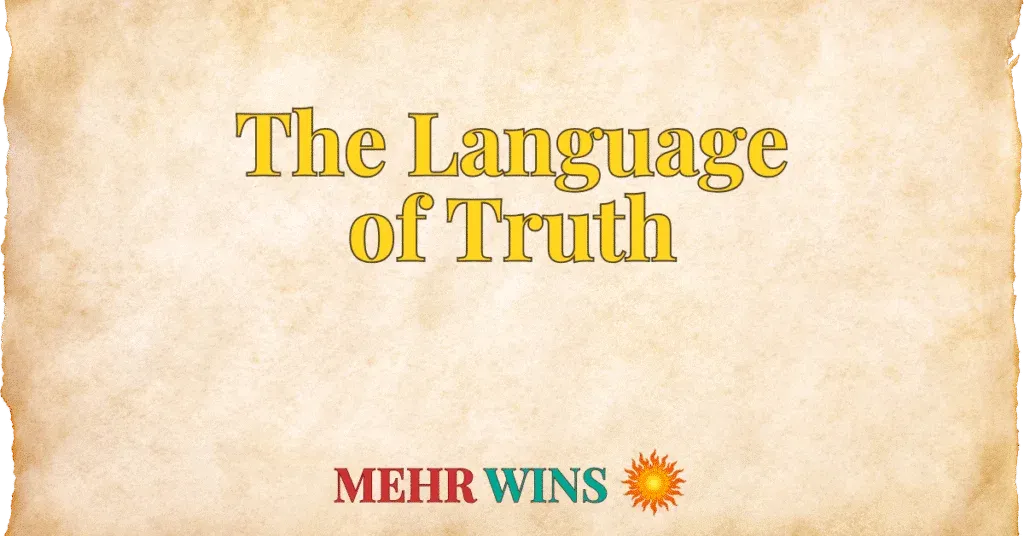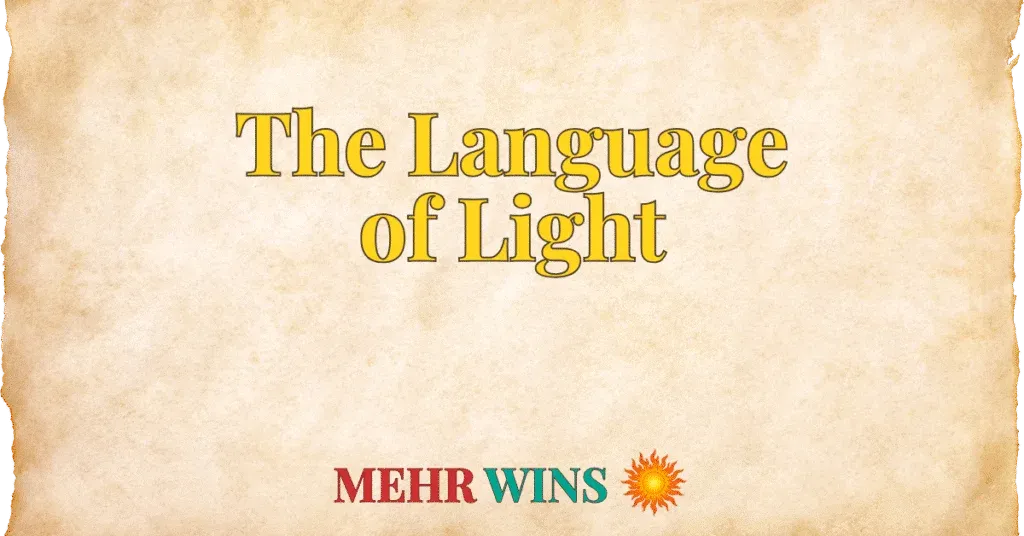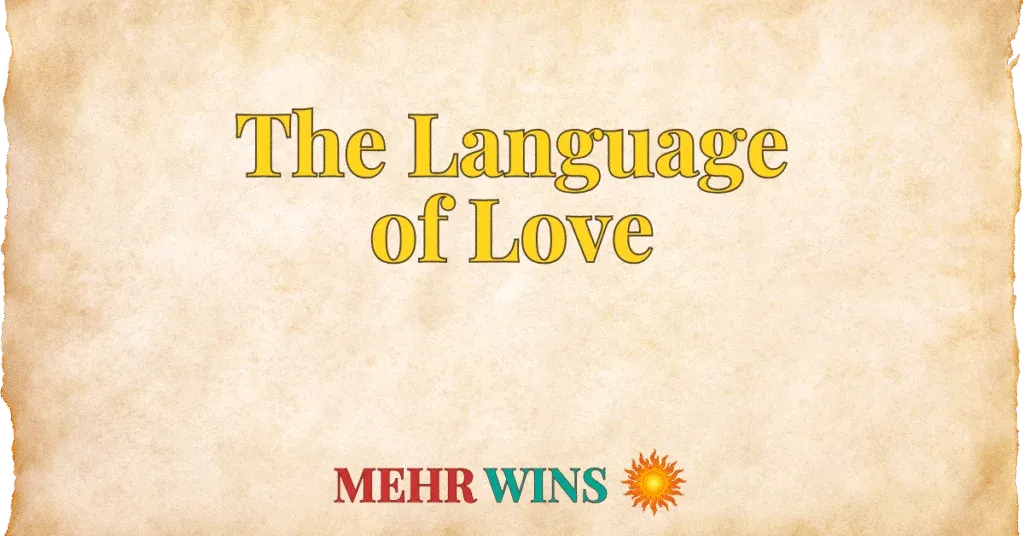
Acceptance isn’t about giving up or giving in. It’s the moment we stop fighting reality and begin to move with it instead of against it. It’s the space where clarity grows, where peace can breathe, and where our energy is no longer wasted in resistance. Acceptance doesn’t mean we approve of everything—it means we recognize the truth of what is so we can respond with wisdom instead of struggle. In Persian, the vocabulary of acceptance is rich with meaning and emotional depth. These ten words reflect the many ways we come to terms with life, through surrender, through presence, through understanding, and through peace. They offer insight into how acceptance can be both a soft landing and a powerful turning point.
1. قبول Qabūl (qa-bool) – acceptance, approval, admission
Qabūl is the most direct term for acceptance, signifying the act of receiving, approving, or admitting something. It implies a direct acknowledgment and embrace of a fact or situation.
Example: “Her qabūl of her past was the first step towards healing.”
2. پذیرش Pazīresh (pa-zee-resh) – acceptance, reception (deliberate, psychological)
Pazīresh denotes a conscious and often deliberate act of acceptance or reception, particularly in a psychological or emotional context. It’s the intentional taking in or acknowledging of reality.
Example: “Finding pazīresh for her difficult circumstances brought unexpected peace.”
3. رضایت Rezāyat (re-zā-yat) – contentment, satisfaction, pleasure (from acceptance)
Rezāyat signifies contentment and satisfaction, often arising from an inner acceptance of one’s circumstances or what is given. It’s a state of being at peace with what is.
Example: “His simple life was filled with deep rezāyat.”
4. تسلیم Taslīm (tas-līm) – surrender, submission, resignation (often positive)
Taslīm is surrender or submission, frequently in a positive, spiritual sense of accepting divine will, fate, or what cannot be controlled. It’s a powerful act of letting go that leads to freedom.
Example: “In facing the unknown, he found peace in taslīm.”
5. واقعبینی Vāqe’binī (vā-qe’-bee-nī) – realism, facing reality, objectivity
Vāqe’binī implies realism and the ability to see and accept reality as it truly is, without illusion or denial. It’s the courageous act of facing facts squarely, however challenging.
Example: “Her vāqe’binī allowed her to assess the situation without emotion.”
6. رواداری Ravādārī (ra-vā-dā-rī) – tolerance, permissiveness, open-mindedness
Ravādārī refers to tolerance and open-mindedness, the acceptance of differences in others’ beliefs, actions, or ways of life. It fosters harmony and understanding in relationships.
Example: “Cultivating ravādārī is essential for a peaceful society.”
7. استقبال Istiqbāl (es-tiq-bāl) – welcoming, positive reception, embracing
Istiqbāl signifies a welcoming or positive reception, embracing something or someone with open arms. It’s an active, hopeful form of acceptance.
Example: “The community gave the newcomers a warm istiqbāl.”
8. گذشت Gozasht (go-zasht) – forgiveness, letting go, passing over
Gozasht literally means “passing over” or “letting go,” signifying forgiveness and the act of releasing resentment or attachment to past hurts. It’s a key step in accepting and moving on.
Example: “Her ability for gozasht brought her immense inner freedom.”
9. حضور Hozūr (ho-zūr) – presence, being present (in the moment)
Hozūr is the state of being fully present and aware in the current moment, which inherently requires acceptance of “what is.” It’s a mindful presence that brings calm.
Example: “He found deep peace in the quiet hozūr of nature.”
10. آسودگی Āsūdegi (ah-soo-de-gī) – comfort, ease, tranquility, freedom from care
Āsūdegi describes a state of comfort, ease, and tranquility that often results from acceptance. It’s the feeling of being unburdened and at peace, free from worries.
Example: “After making her decision, she felt a profound sense of āsūdegi.”
Pronunciation Note
To help with pronunciation, Persian transliterations often use the following consonant markers:
• gh – a throaty sound, like French r (غ / ق)
• kh – a deep “h” sound, like the ch in Bach (خ)
• zh – like the s in measure (ژ)
• sh – like sh in shine (ش)
• ch – like ch in cheese (چ)
Stressed syllables are shown in bold within the pronunciation.
Italicized words in parentheses reflect how to say the word phonetically.


